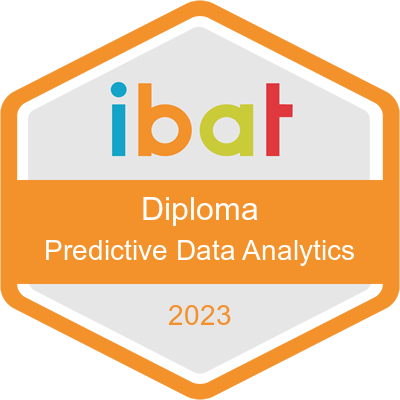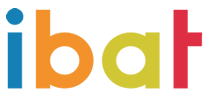(6.30pm-9.30pm)
On-Campus: €1595
This course is starting in May 2024 Book Now!
Why Data Analytics
The Diploma in Data Analytics will introduce you to many of the popular techniques used in the field of data analytics and prepares you for the exam Microsoft exam 'Analysing Data with Microsoft Power BI' (Exam-Ref PL-300). This course will show you exactly what data analytics is, how to extract and present value from data and, most importantly, how to develop your analytical skills to obtain employment.
This course gives you a solid foundation in understanding data models and focuses on the skills and knowledge needed to acquire, profile, clean, transform and load data; design and develop data models, create measures with DAX; optimize model performance; create reports for usability, enhance reports to expose insights and perform advanced analysis. It covers three main areas: understanding how data is stored and manipulated in databases (using MySQL and MySQL workbench), how to extract and present data using Microsoft Power BI and how to develop predictive models using RapidMiner.
The skills obtained through this programme will enable you to shift roles from ‘trusted observer’ to a more commercial role as strategist, analyst and adviser. You can move to a role where you actively partner with management and operations functions to influence the direction and decisions of the business on a day-to-day basis.
Some of the world's largest firms, including Google, LinkedIn, Facebook, IBM, Apple, Pfizer, Twitter, and GlaxoSmithKline, have European headquarters in the country. And data scientists are always in demand at firms of that size.
Course Overview
On the programme you will also be introduced to both ‘big’ and ‘small’ data; learn how to manipulate, analyse, and interpret it in sophisticated ways; and realise how to present this in a persuasive and influential manner. It will teach you how to identify situations in which predictive analytics can add value by better meeting customer needs, through the smarter allocation of marketing budgets and by improving financial decisions.
Please Note: It important to note that this is not a statistics course; even though all the techniques are based on the theory of statistics; the approach taken here is logic-based, rather than formula-based. Therefore, you will not be a statistics expert at the end of this course; however, you will know and be able to apply all the techniques in a practical manner.
Students need to be using a Windows computer. If they have a Mac it must be capable of running Windows.
Course Content
The course covers the following areas:
- Storing Data
- Working with SQL to store and retrieve data
- Preparing Data
- Power BI
- Modelling Data
- Power BI
- Visualising Data
- Power BI
- Analysing Data
- Power BI
- Building Predictive Models
- RapidMiner (Decision Trees, Confusion Matrix, Clustering, Text Analysis)
- Deploying Data Workflows
- Power BI
- Ethical Overview
- Microsoft Exam Overview
This course requires no programming skills.
Assessment
Participants will be required to successfully complete project work (100%), this project work is based on real-world case studies and data-sets.
What is a Professional Diploma?
An IBAT Professional Diploma is a focused, short duration practical course that consolidates, upskills and/or reskills learners in a professional area. They are stand-alone qualifications that do not lead to an award on the National Framework of Qualifications (NFQ).
Lecturer Profile

Career Opportunities
Data Analysts are in strong demand in many industries, including pharmaceuticals, marketing, finance and insurance, as well as cloud computing.
According to GoStudy Consulting and EdTech, the demand for a graduate in Data Analytics in Ireland has increased by 50% in the last five years (as of 2020).
Graduates from Ireland are highly employable thanks to industry-led courses in med-tech, analytics, digital marketing, data engineering, data analytics, life sciences, ICT, pharma, and health care.
Ireland has more than 17,000 startups, according to Stoodnt. Organizations in Ireland are looking for talented analysts as the amount of data and technological insights grows.
Testimonials
My favourite aspect of the course was working & learning rapid miner.
Learned new skills, especially around Rapidminer and datasets.
Entry Requirements
This programme is suited for individuals with a variety of different experience levels, and while there is no academic requirement for entry, all applicants should demonstrate an interest in and an aptitude for data analytics. Basic computer literacy is a requirement with a digital literacy certificate or equivalent.
It should be noted that while this is not a statistics course, all the techniques are based on the theory of statistics and you will need to understand basic business statistical concepts, including mean/average, standard deviation and normal distribution.
Please note: Students need to be using a Windows computer. If they have a Mac it must be capable of running Windows.
How to Apply
Click on ‘Find out More’ or ‘Book Now’ to reserve your place or enquire more about this course.
You can also book a one to one with one of our course specialists by calling us at: +353 1 8075 055 or emailing us at: This email address is being protected from spambots. You need JavaScript enabled to view it.
We also have flexible payment plans, please ‘Find out More’ or call us to discuss your options or visit the college anytime and our course specialists will be more than willing to discuss any queries you may have.

A Digital Certificate will be issued upon successful completion of a project based on real world case studies and data-sets, in addition, you will also receive a Digital Badge.
What is a Digital Badge?
A micro-credential is a compact credential that verifies the achievement of a skill or knowledge gained. A Digital Badge is a visual representation of having earned a micro-credential which can be shared on various online platforms to showcase the earner’s achievement.
Why have a Digital Badge?
Your Digital Badge and Certificate can be shared on social media channels such as LinkedIn and Facebook. Digital Badges can added to email signatures, displayed on resumes or added to recognised achievement platforms such as Badgr, Credly and OpenBadges. These are a great way to communicate your knowledge and skills, and highlight your commitment to Continuing Professional Development (CPD).



